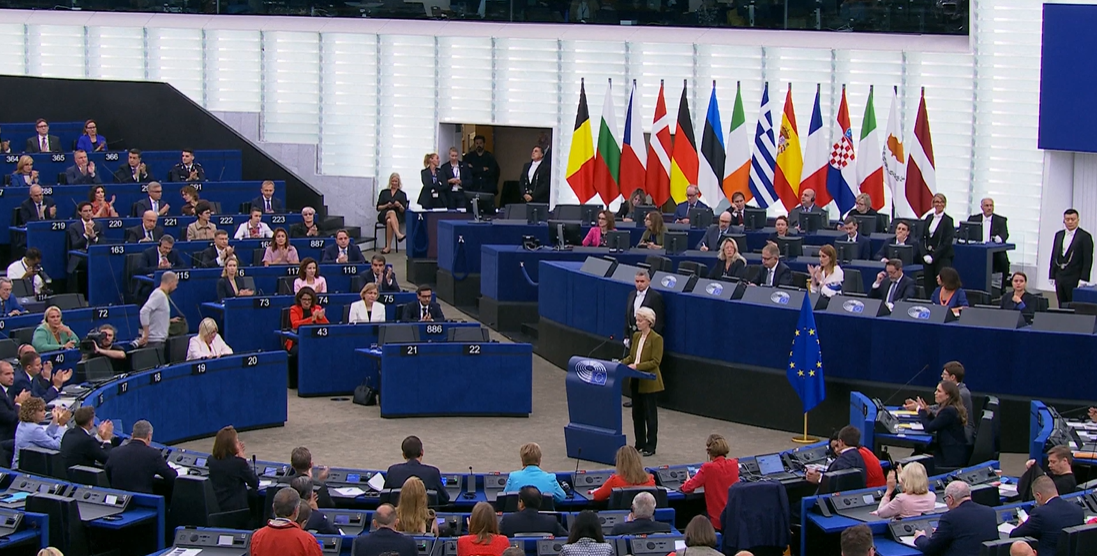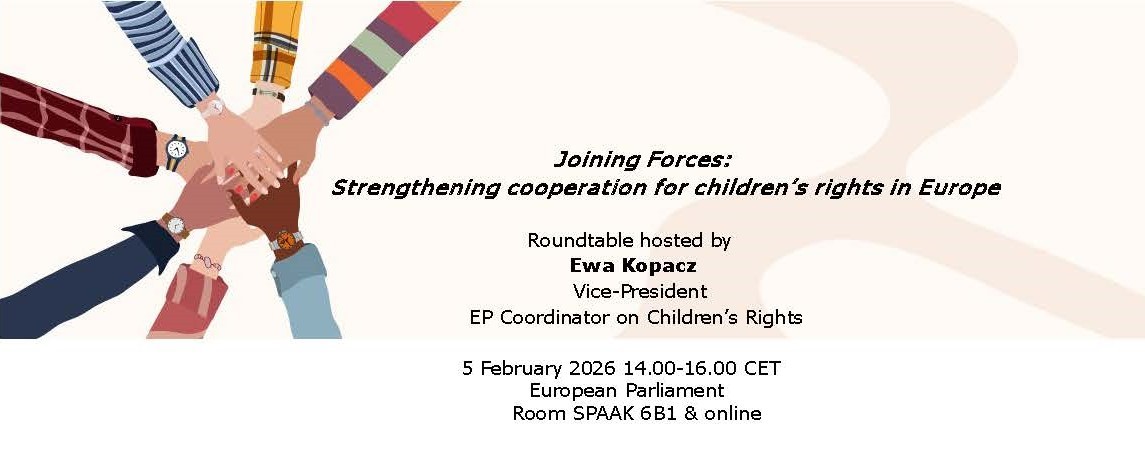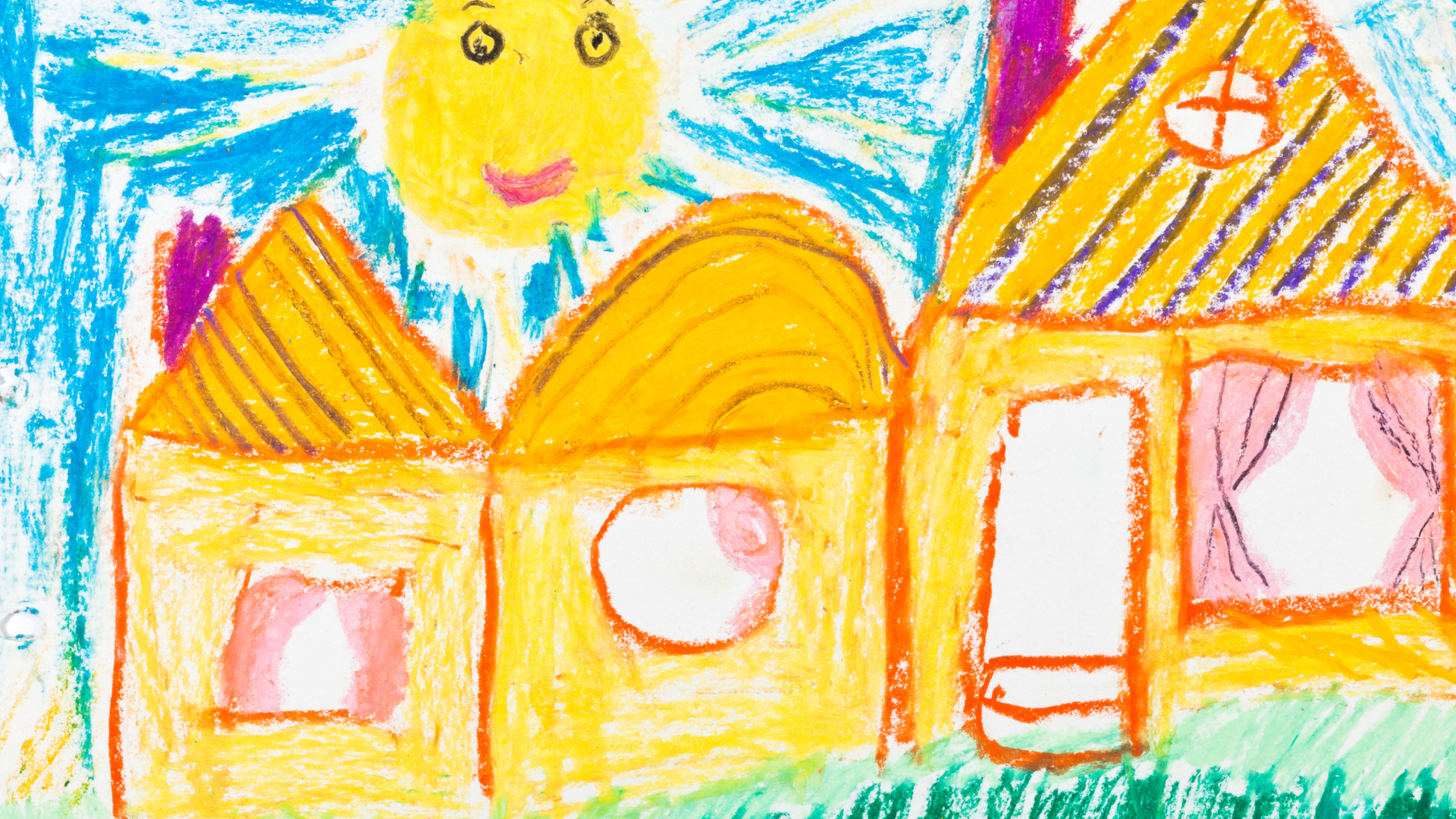Eurochild’s reaction to the 2025 State of the European Union
Eurochild welcomes the EU’s renewed focus on eradicating child poverty through the European Child Guarantee, strengthening democracy, and protecting freedoms. However, we are concerned about the lack of attention to equality strategies and the absence of children’s rights and civil society. Proposed measures for Gaza are delayed, disjointed, and fail to meet the urgency of the crisis.
In her speech, President von der Leyen started by addressing the rising geopolitical tensions and highlighted defence with stronger rhetoric and greater funding, while social measures received diminished priority.
Here is our full analysis by topic:
Democracy and Rule of Law
President von der Leyen emphasised that the rule of law is the safeguard of freedoms, and respecting it should be a condition to access EU funds. She also highlighted the importance of enhancing the capacity to monitor and identify information manipulation and disinformation, particularly given the debates and discourses that are occurring even within the European Parliament, instrumentalising children and women and promoting anti-rights narratives.
The President mentioned the creation of a new European Centre for Democratic Resilience, which aligns with our call to establish a European Mechanism to monitor children’s rights and the anti-rights movements. While we value the focus on the European Democracy Shield, as well as on supporting media, the contribution of civil society organisations in defending EU values and fundamental rights of children should have also been emphasised in the President’s speech.
Fighting child poverty and promoting equality
The President stated that we “urgently need an ambitious European Anti-Poverty Strategy” and outlined plans to eradicate poverty by 2050, supported by a strong Child Guarantee to protect children from poverty. We welcome this transition from poverty reduction to poverty eradication. , Eurochild advocates for a strategy eradicating child poverty backed by adequate funding, alongside robust monitoring and accountability mechanisms and sustained investment in the key services of the European Child Guarantee. Moreover, we stress the critical role of the European Semester in monitoring progress and strategies to combat poverty, including child poverty. Combating child poverty must be a central priority in enlargement countries; therefore, the European Child Guarantee should also be extended to these countries, including Ukraine, while reforms linked to children’s rights should be monitored through the EU Enlargement Package. The call to support housing by the adoption of the first Affordable Housing Strategy and the organisation of the first EU Housing Summit is also crucial, given the housing challenges that children are experiencing across Europe. However, her speech did not address the need for inclusive education, including accessible early childhood education and care, as well as stronger child protection systems, as crucial tools to lift children out of poverty and social exclusion. We also welcome the mention of the Social Climate Fund, but we would like to have a deeper focus on how the EU would protect the most disadvantaged people and their children from environmental challenges.
Equality
Von der Leyen stated: “Europe’s independence is about protecting our freedoms’’. The European Union is fundamentally about protecting and promoting its core values — such as equality, diversity, and non-discrimination. However, the President did not mention the various equality strategies due for adoption in the next 12 months, including the EU Anti-Racism Action Plan, the Gender Equality Strategy, the LGBTQ+ Strategy, as well as the Intergenerational Fairness Strategy. These frameworks are interconnected and must be implemented in a coherent and mutually reinforcing manner to address today’s challenges effectively and to prioritise those at risk of discrimination. At Eurochild, we note with concern that people with disabilities, as well as those with a migrant background and those from ethnic minority groups, such as Roma, were completely absent from the speech. We are also concerned that the focus on migration is centred mainly on people attempting to cross borders illegally, with the absence of a human rights approach focused on legal safeguards.
Digital
The speech marks the European Commission’s commitment to fight online risks to children, such as cyberbullying, self-harm, harmful algorithms, and addictions. However, the EU must guarantee a child rights approach to this issue to ensure we promote safe and age-appropriate digital environments without undue restrictions on children’s rights, especially participation. We are disappointed to see a shift of the responsibility from online platforms to parents. This shift is not only unproductive, as the last decades have shown that parents are just one part of the solution, but also against the EU’s previous efforts under the Digital Services Act and the BIK+ Strategy. We call on the European Commission to prioritise empowerment and safety rather than disproportionate limitations on children’s rights. For this, the EU must offer a comprehensive approach to children’s mental health and overall well-being and build on the responsibility of social media platforms to ensure children’s safety. We hope this approach is reflected in the much welcomed expert group announced by the President, necessarily encompassing a wide variety of civil society and the direct participation of children.
Children and armed conflicts
The need to support the freedom and independence of Ukraine is highlighted through the story of Sasha, a child from Ukraine who escaped after being forcefully deported and abducted by Russia, who was attending the debate. We welcome the President’s commitment to ensuring that abducted children are returned to Ukraine and organise a summit for the International Coalition for Abducted Children. It is crucial to continue to support Ukraine by strong funding as well as diplomatic efforts for a ceasefire and to end the war. In its Recovery Plans, Ukraine must prioritise its children. This means ensuring that investments in reconstruction and reform place children’s rights and well-being at the centre — from access to quality education, healthcare, and psychosocial support to protection from violence, exploitation, and displacement. Prioritising children also requires tackling child poverty.
On Gaza, Ursula von der Leyen stated that Europe needs to do more. She has proposed suspending parts of the Horizon funding, but this has been delayed due to a lack of majority support. The Commission will suggest further measures, including suspending bilateral support and halting payments, imposing sanctions on violent settlers, and considering a partial suspension of the trade-related Association Agreement, as well as establishing a Palestine Donor Group. However, these initiatives remain delayed, fragmented, and fall short of the decisive action the crisis demands. United Nations independent experts have urged to respond to the war crimes committed by Israel since 2023, echoed by civil society, including Eurochild, while the EU was not acting. These measures should have been taken long ago; now, with famine officially declared and UN experts as well as leading scholars on genocide confirming that the situation amounts to genocide, the European Union must implement them with the utmost urgency and without compromise.
To truly live up to its values, the European Union must match ambitious words with decisive action - ensuring that children’s rights, equality, and the role of civil society are placed at the heart of its policies, both within Europe and beyond. We will continue to put our expertise and pan-European reach at the disposal of the European Commission to support this process.





